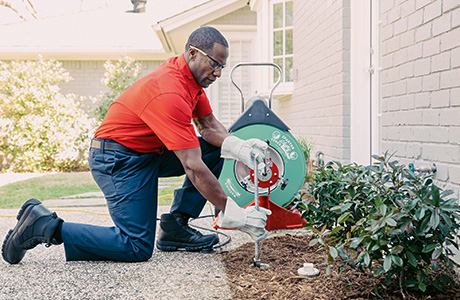
February 08/2024
How to Avoid a Sewer Backup
Few plumbing problems are worse than a sewer backup. This occurs when wastewater and sewage flow in the opposite direction they’re intended to, typically up through drains, toilets, or sinks in your home. It’s a messy and potentially hazardous situation due to the unsanitary nature of sewage. A sewer backup is not pleasant to think about, but you can take precautionary measures to avoid it.
Mr. Rooter Plumbing is a premier plumbing company offering superior-quality sewer line services, including sewer repair, trenchless sewer line replacement, sewer line cleaning, and more. In today’s blog post, we’ll outline what you need to do to prevent sewer backups. Let’s get into it.
- Dispose Of Grease, Fats, And Oil Properly
Never pour grease, fats, or oil directly down the drain. These substances solidify as they cool, and they can easily clog pipes. Let grease cool and solidify, then scrape it into a container and dispose of it in the trash. Install a grease trap under your kitchen sink to capture grease before it enters the main drain.
Drain traps act as a first line of defense against blockages. Food scraps, hair, and other debris that might slip through the drain can get caught somewhere along the drain pipes, preventing them from entering the main sewer line and causing bigger clogs further down. Consider installing drain traps in your sinks and other drains. These traps catch food scraps and other debris before they enter the main drain. Make sure you clean the traps regularly to prevent buildup and potential clogs.
Regularly cleaning your drains might not be the most glamorous home maintenance task, but it’s a crucial step in preventing major plumbing problems and saving yourself money and hassle in the long run. Schedule professional drain cleaning at least every 1-2 years, or more often if you have frequent backups or slow drainage. For minor clogs, you can try using a drain snake or a baking soda and vinegar solution to clear them yourself. If you’re dealing with slow-draining fixtures and your DIY efforts don’t seem to resolve the problem, call a nearby plumbing repair service to perform professional drain cleaning.
- Get a Sewer Line Inspection
Consider having your sewer line inspected every 2-3 years, especially if you have older pipes or suspect potential problems. A sewer line inspection can help you identify potential issues like cracks, root intrusion, or blockages before they cause major backups.
- Be Mindful of What Goes Down the Drain
It may seem convenient to flush certain items down the toilet, but remember that your toilet is not a garbage can. Flushing anything other than toilet paper down the toilet can easily clog the system. Only flush toilet paper and avoid flushing wipes, diapers, feminine hygiene products, or other non-biodegradable items. These items can clog pipes and cause backups. Furthermore, flushing non-flushable items down the toilet wastes water.
Aging sewer lines are more susceptible to blockages. If your sewer line is old (over 50 years old), cracked, or frequently clogged, consider replacing it to prevent sewer backups. Hire a trusted plumbing service that specializes in trenchless sewer line replacement to help you install a new sewer line. Experienced plumbers will help you choose a durable material for your new sewer line.
- Use Your Garbage Disposal Correctly
Many homeowners treat their garbage disposals as trash cans and end up learning the hard way. Improper garbage disposal use can cause all sorts of plumbing issues, including slow drains and sewer line blockages. To avoid problems, only grind small amounts of food waste at a time and run cold water while doing so. Don’t put fibrous materials like celery or banana peels or greasy items like bones or meat scraps down the disposal, as they can clog pipes.
- Install A Backwater Prevention Valve
This valve prevents sewage from backing up into your home plumbing system in case of a blockage in the main sewer line. Installation should be done by a licensed plumber to ensure proper functionality and compliance with local regulations.
What You Should do if You Have a Sewer Backup
Locate your main water shut-off valve and turn it off. This prevents further wastewater flow and minimizes potential damage. If possible, do not use drains or toilets because flushing toilets or using drains can worsen the backup and spread contamination. Then, contact a licensed plumber as soon as you can. They have the expertise and equipment to safely diagnose the cause of the backup and clear the blockage.
If you’re dealing with a sewer backup or need professional help with preventing sewer backups, Mr. Rooter Plumbing is one phone call away. At Mr. Rooter Plumbing, we’re here to help with all your residential and commercial plumbing needs.




